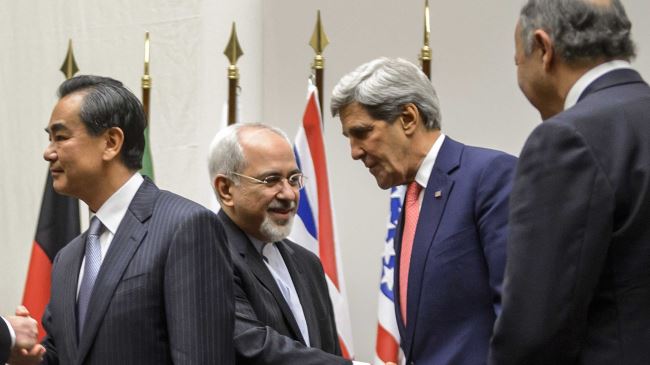 It took a searing crisis for the United States to officially acknowledge that it needs Iran’s help. On Monday, U.S. Deputy Secretary of State William J. Burns reportedly discussed the jihadist takeover of Iraq's Sunni heartland with his Iranian counterparts on the sidelines of nuclear talks in Vienna.
It took a searing crisis for the United States to officially acknowledge that it needs Iran’s help. On Monday, U.S. Deputy Secretary of State William J. Burns reportedly discussed the jihadist takeover of Iraq's Sunni heartland with his Iranian counterparts on the sidelines of nuclear talks in Vienna.
Good idea. For years, we’ve been calling on the United States to sit down and discuss its mutual interests with Iran like adults, instead of shouting across the Atlantic. Two of us—Flynt and Hillary Mann Leverett, both former career Middle East specialists for the U.S. government—have been vilified in the American press for calling for pragmatic engagement. Now there’s an opportunity to work together to face down a common threat, and even Republican leaders like Lindsey Graham, the unfailingly hawkish South Carolina senator, are starting to see things our way.
The United States should engage Iran not just as an unavoidably influential player, however, but as an actor with its own concerns about terrorism—including by jihadis involved in the U.S.-supported campaign against Bashar Assad’s government in Syria. If the United States tries—as in past episodes of cooperation with Tehran—to elicit Iranian help in Iraq without recognizing Iran’s wider interests—dialogue will fail.
Likewise, Washington needs to deal with Tehran in a genuinely reciprocal way on the nuclear issue. In the nuclear talks, America and its Western partners have insisted on terms that would cut Iran’s uranium enrichment infrastructure to token levels and freeze it there for 15-20 years. This will not just fail—it will backfire against Western interests on multiple fronts. The West should instead focus on crafting a deal recognizing Iran as an independent, truly sovereign and rightfully rising power in its own region—as the United States did with China 40 years ago.
Like the People’s Republic of China, the Islamic Republic of Iran was born out of a revolution promising its people two things: to replace an externally imposed autocracy with an indigenously created political order—for Iran, one grounded in a model of participatory Islamist governance—and to end the subordination of their country’s foreign policy to the dictates of outside powers. In both cases, successive U.S. administrations rejected these revolutionary projects and strove to undermine them.
In the Chinese case, Washington eventually realized that two decades of trying to isolate, economically strangle and undermine the People’s Republic had not just failed—it had backfired, weakening the U.S. position in Asia and getting America involved in the draining quagmire of the Vietnam War. America’s opening to China in the 1970s was fundamentally predicated on three things: U.S. acceptance of the People’s Republic as an enduring political entity representing legitimate national interests; a concomitant U.S. commitment to stop trying to block China’s peaceful rise as an increasingly important player, in Asia and globally; and U.S. acknowledgement that, although America would continue to have important interests in Asia, the region would no longer be an exclusively American sphere of influence.
On this last point, the most important sentence in the 1972 Shanghai Communique—the document that served as the basic charter for realigning Sino-American relations—declares, “neither [the United States nor China] should seek hegemony in the Asia-Pacific region and each is opposed to efforts by any other country or group of countries to establish such hegemony.” Today, each side is growing skeptical about the other’s ongoing adherence to this commitment. But, for more than three decades, American acceptance of China’s peaceful rise enabled the most extraordinary period of economic vitality and rising prosperity in the history of the Pacific basin.
By Press TV
The Iran Project is not responsible for the content of quoted articles.

 QR code
QR code